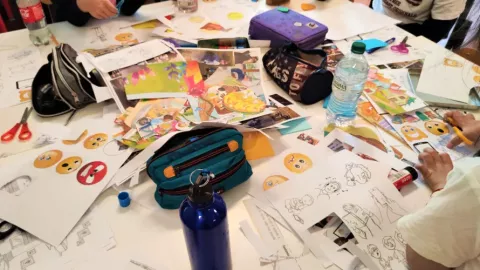I was not safe in his house
The COVID-19 pandemic and violence against refugee and migrant girls and women in Italy

Highlights
The COVID-19 pandemic has exacerbated risks of violence for refugee and migrant girls and women. This research explored the specific impacts of the pandemic on exposure to gender-based violence (GBV) risks among refugee and migrant girls and women in Italy. The research focused on refugee and migrant girls and women because of the intersectionality of vulnerabilities related to their gender and their migration status. It examined the availability and accessibility of GBV service provision over the course of the pandemic, and explored how services adapted in the face of this health emergency.
The study revealed that COVID-19 containment measures (such as movement restrictions and physical distancing) and the socio-economic impact of the pandemic have increased GBV risks for refugee and migrant girls and women, both indoors and in public spaces, compounding pre-existing and multi-layered vulnerabilities and creating new ones. The vast majority of key informant and participants in focus group discussions (FGDs) felt that the pandemic exacerbated key triggers of violence, including forced coexistence in small and/or overcrowded spaces, limited social support, economic difficulties and job insecurity, the slowdown of learning opportunities, xenophobia and increased social tension fuelled by the health emergency. Adolescent girls and young women were particularly exposed to episodes of street harassment and discrimination.





